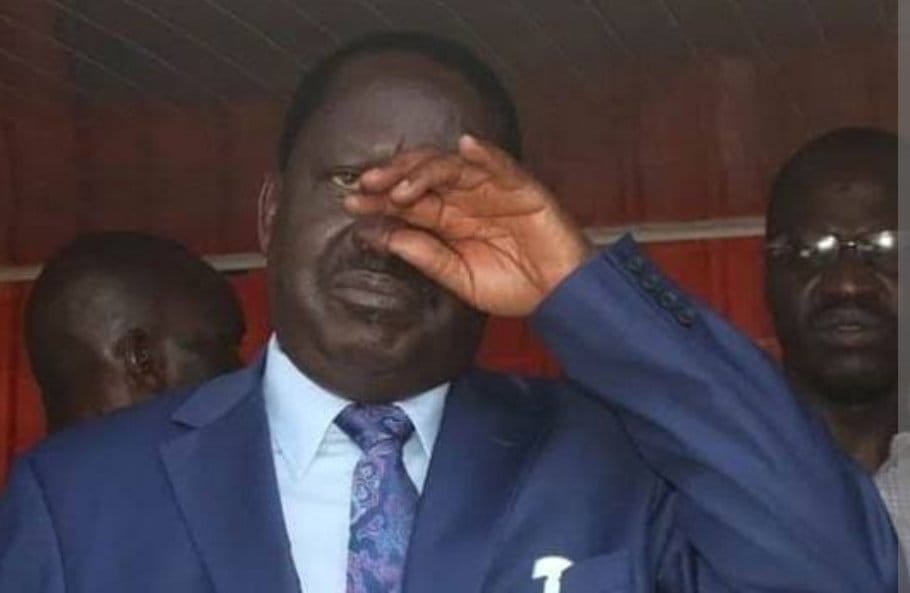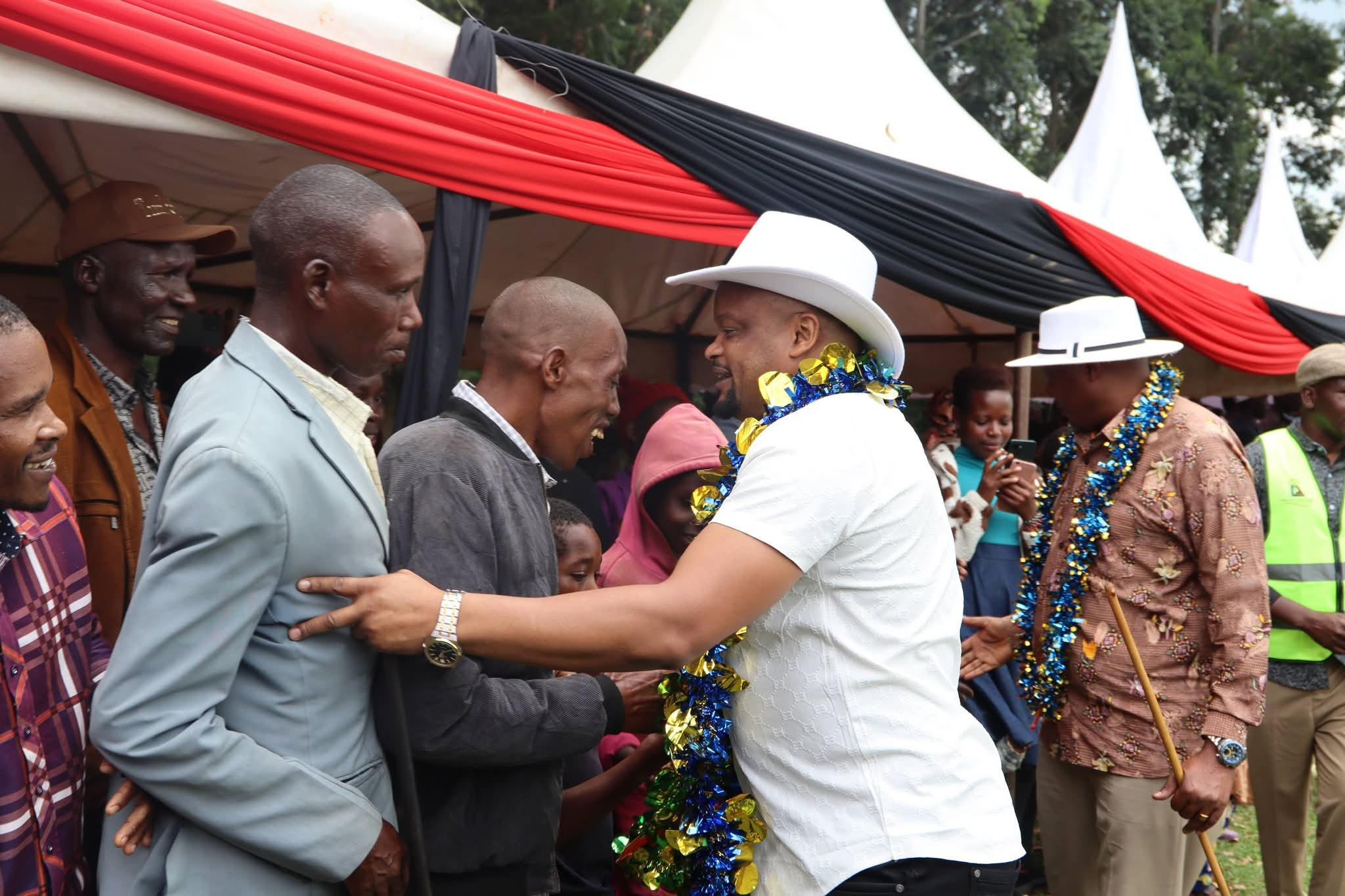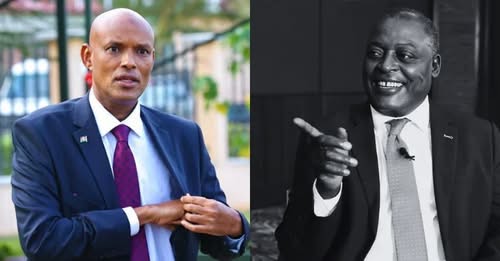Raila Odinga’s AUC Defeat: A Political Reckoning and Kenya’s Shifting Loyalties

On February 15, 2025, Raila Odinga, Kenya’s veteran opposition leader, suffered a stunning defeat in his bid to become the next African Union Commission (AUC) Chairperson. The loss, which came at the hands of Djibouti’s Foreign Affairs Minister Mahmoud Ali Youssouf, has been hailed as a victory by many Kenyans—particularly the youth—who viewed Odinga’s candidacy as a betrayal of democratic principles. This outcome marks a pivotal moment in Kenya’s political landscape, exposing deepening fissures between the old guard and a disillusioned Generation Z, while reshaping President William Ruto’s long-term strategies ahead of the 2027 general elections.
Raila Odinga: From Icon to Enigma
For decades, Raila Odinga has been synonymous with Kenya’s struggle for democracy. His role in fighting authoritarian regimes, advocating for constitutional reforms, and championing grassroots movements earned him the moniker “Agwambo” (the mysterious one). However, his recent political maneuvers have alienated a critical demographic: Kenya’s youth.
The turning point came in June 2024, when nationwide protests led by Gen Z activists erupted against President Ruto’s administration. Demonstrators decried rising taxes, the controversial abolition of the National Health Insurance Fund (NHIF), its replacement with a poorly implemented Social Health Insurance (SHI/SHA) scheme, and opaque public-private partnerships like the Adani Group’s takeover of Jomo Kenyatta International Airport. The protests turned deadly on June 25, 2024, when police opened fire on crowds storming Parliament, killing over 30 unarmed youths.
Instead of standing with the protesters, Raila shocked the nation by entering a “broad-based government” agreement with Ruto days later. The deal, framed as a unity pact to stabilize the country, was perceived by many as a Faustian bargain. Critics accused Raila of legitimizing a regime responsible for violence against citizens and abandoning his democratic ideals.
Ruto’s Calculated Gamble
President Ruto’s endorsement of Raila’s AUC bid was a strategic masterstroke. By positioning Raila as a continental leader, Ruto aimed to dismantle the opposition’s influence and absorb Raila’s voter base—particularly in the Luo-dominated Nyanza region, which historically votes as a bloc. This move was critical for Ruto, who has struggled to retain support in the vote-rich Mt. Kenya region after backlash over austerity measures and accusations of cronyism.
Political analysts argue that Ruto’s calculus was twofold:
1. Neutralizing Opposition: By co-opting Raila into his administration, Ruto sought to eliminate street protests and parliamentary dissent, ensuring smoother governance.
2. 2027 Elections: Ruto hoped Raila’s endorsement would secure the Luo vote while presenting himself as a pan-ethnic unifier.
However, the alliance backfired. The AUC campaign exposed Raila’s diminishing grassroots appeal, as young Kenyans rejected his perceived hypocrisy.
Gen Z’s Revolt: Betrayal and Awakening
Kenya’s Gen Z—a tech-savvy, politically conscious demographic—has emerged as a formidable force. Unlike older generations loyal to ethnic kingpins, these youths prioritize accountability over allegiance. Raila’s silence during the 2024 crackdown and his subsequent partnership with Ruto shattered their trust.
“Raila sold out,” remarked 24-year-old activist Maria Achieng, whose brother was killed during the protests. “He used to speak for us, but now he’s dining with those who murdered innocent people.”
The youth’s frustration is rooted in systemic grievances:
- Economic Hardships: Unemployment, soaring taxes, and costly healthcare under the SHI/SHA system.
- Repression: Abductions of activists and bloggers, allegedly by state agents, have surged since 2023.
- Corruption: The Adani deals, criticized for lacking transparency, symbolized elite collusion at the expense of ordinary citizens.
Social media campaigns like #RailaMustGo and #NotOurCandidate trended ahead of the AUC vote, with activists rallying behind Djibouti’s Youssouf as a protest against Raila.
The AUC Race: Raila’s Undoing
Raila’s AUC campaign faced insurmountable hurdles. While Ruto lobbied African leaders, grassroots momentum in Kenya collapsed. Activists circulated videos of Raila shaking hands with Ruto juxtaposed with footage of bleeding protesters, framing him as complicit in state violence.
Djibouti’s Youssouf, meanwhile, leveraged his diplomatic experience and Kenya’s internal dissent to secure votes. East African nations, wary of Ruto’s growing influence, reportedly backed Youssouf to counterbalance Kenya’s dominance.
Raila’s loss underscores a broader continental shift. Younger African leaders are prioritizing technocratic competence over liberation-era legacies, a reality Raila—a figure tied to past struggles—failed to navigate.
Fallout and Implications
1. Ruto’s Vulnerabilities: The AUC defeat weakens Ruto’s “broad-based government” narrative. Without Raila’s opposition credentials, Ruto faces renewed pressure to address youth demands or risk unrest.
2. Raila’s Legacy: Once a titan of Kenyan politics, Raila risks fading into irrelevance. His alliance with Ruto eroded his revolutionary brand, leaving supporters questioning his integrity.
3. Gen Z’s Rise: The youth’s ability to sway the AUC vote signals their growing electoral clout. Politicians ignoring their demands—for jobs, healthcare, and civil liberties—do so at their peril.
4. Regional Dynamics: Youssouf’s victory shifts AU power balances, diminishing Kenya’s continental influence and emboldening smaller states.
A New Kenya Emerges
Raila Odinga’s AUC defeat is more than a diplomatic setback—it is a watershed moment for Kenya. The election exposed the declining relevance of ethnic politics and the ascendancy of a generation demanding accountability. President Ruto, now stripped of a key ally, must reckon with a populace increasingly unwilling to tolerate empty promises.
As Kenya marches toward 2027, the political playbook is being rewritten. The youth, armed with smartphones and hashtags, have proven that loyalty is earned, not inherited. For Raila, the lesson is clear: in today’s Kenya, bloodstained alliances and backroom deals will not suffice. The future belongs to those who listen to the streets.
The writer is an Advocate of the High Court of Kenya and a political analyst







Comments (0)
No comments yet. Be the first to comment!